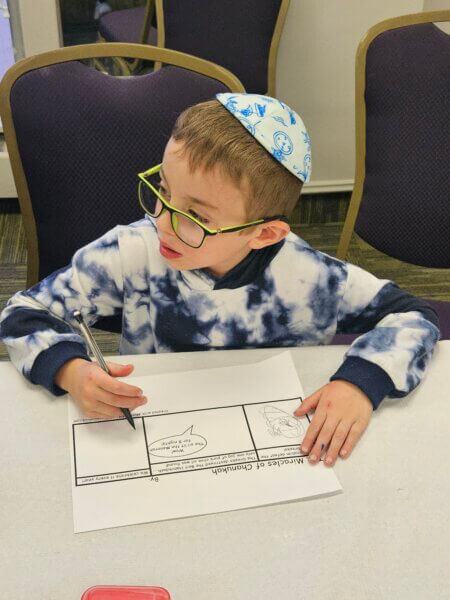By Sara Wolfe
The parsha begins with Pharaoh’s two troubling dreams.
After being unsettled by his dreams, and seeking to find an explanation to them by his necromancers (unsuccessfully), the chamberlain of the cupbearers begins to tell Pharaoh about Yoseph, and his acumen for telling dreams. This begins the process of Yoseph’s rise from the lowest dregs of society to become the second in command in all of Egypt. From Yoseph’s remarkable journey we can derive the secret to success.
Rabbi Wallerstein explains that as Yoseph matures and grows up, we see the inspiring development of Yoseph’s character traits. Let’s go back to Yoseph in his younger years. He tells his family of his dreams, in which his brothers are bowing down to him. What happens? His brothers’ jealousy and hatred towards him intensifies and they throw him in a pit.
Then Yoseph is given another chance. His brothers take him from the pit and sell him as a slave instead. G-d tests Yoseph by making him successful again, this time in his master’s home. He is left in charge of the home. And when his master Potifar’s wife approaches him seeking to seduce him, Rabbi Wallerstein points out that he shows a lack in character ethic by saying to her, “There is no one greater in this house than I.” Whether true or not, this is not a smart thing for a servant to say to his master’s wife. After being falsely accused by Potifar’s wife, Yoseph is thrown into prison.
Here, he develops his character traits, and does something that leads to his ultimate accession to power. From prison, he is tested again by being given success. He finds favor with the prison warden and Yoseph is put in charge of his fellow prisoners. Instead of putting them in their place, he selflessly shows care for them. A simple gesture, he looks and notices that two of the prisoners looked discontented. He asked, “Why do you appear downcast today?” From there they tell him about their dream and he interprets them and credits G-d for his knowledge.
Because of this selfless gesture, the cupbearer, who he helped, ultimately recommends him to Pharaoh when he needs help with his dreams. Again, Yoseph does not take credit for his success. He says it is G-d, not me. This is so unique that Pharaoh instantly recognizes he is different and moves him from a prisoner to second in command of the country.
It thus emerges that there are two basic parts of his character that he perfected while he was in prison: looking beyond himself to care for others whom he didn’t even necessarily have a connection to, and attributing his success to the Almighty.
He masters these attributes so much so, that we see it engrained as a part of him when his brothers come down to Egypt, as he is giving them provisions for the famine and he reveals to them that he is Yoseph. While his brothers worry that Yosef will take revenge, he says to them, do not be upset that you sold me, G-d sent me here to put me in position to provide for you.
This was Yoseph’s greatness, his ability to recognize, it is not all about me. Power does not belong in my hands, it is really up to G-d, I just work here. This timely message from the parsha is what Chanukah is all about. The Greek culture embodied just the opposite: it is all about me and my beauty. On Chanukah, we battle the Greek mentality and realize G-d’s hand in the world and all the miracles he does for us. This ultimately is what Yoseph teaches us.
Sara Wolfe and her husband Rabbi Danny are the Young Professionals Division Coordinators at The Jewish Experience.


